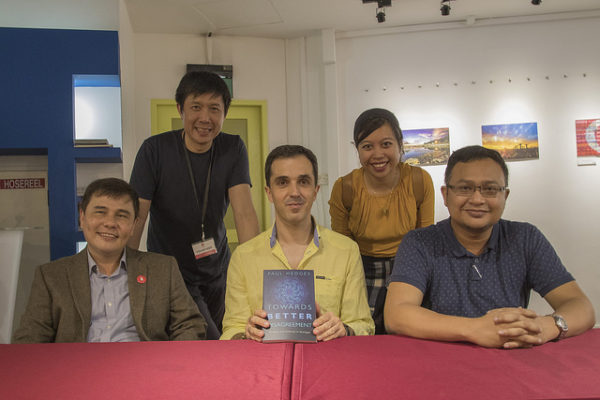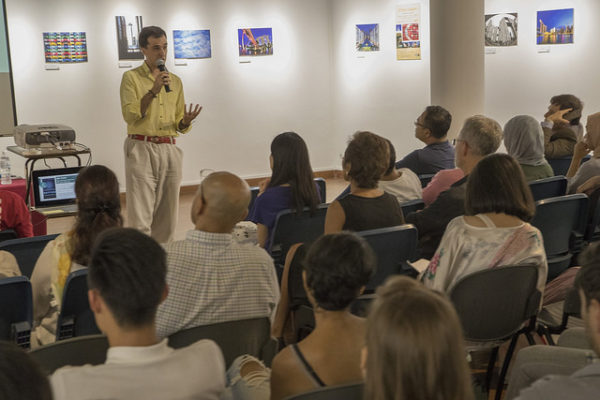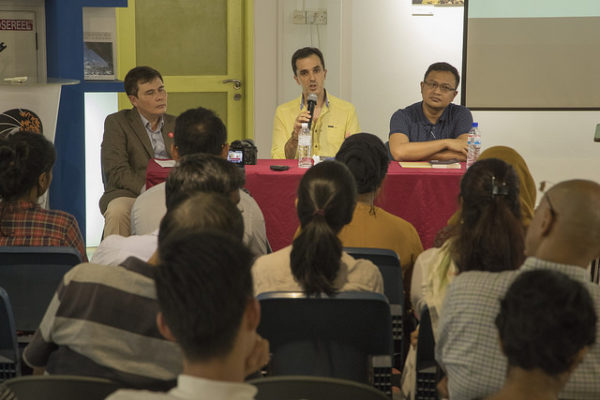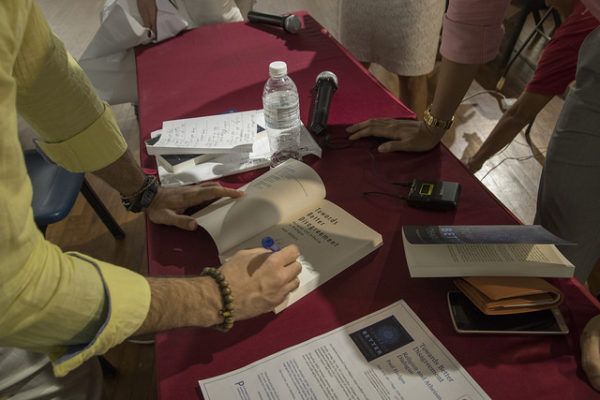By Fadiah Johari
From Leftwrite Center
Dr Paul Hedges spoke at the launch of his book, “Towards Better Disagreement: Religion and Atheism in Dialogue,” on October 14, 2016, at the Photographic Society of Singapore (PSS).
Leftwrite Center and the Humanist Society (Singapore) jointly organised the launch. Dr Hedges, currently an Associate Professor in Interreligious Studies, teaches at the S. Rajaratnam School of International Studies (RSIS) at Nanyang Technological University.
Dr Hedges decided to write his book, Towards Better Disagreement: Religion and Atheism in Dialogue, after observing an increasingly polarised debate between atheists and religious followers in the United Kingdom and around the world. He also saw the rise of new atheists such as Richard Dawkins and Christopher Hitchens, who argued for the proactive criticism of religion.
Dr Hedges felt that a lot of people were talking past each other, stereotyping each other and missing the point. For example, religious people were often seen as stupid and crazy, while atheists were often seen as immoral. But if religious people were stupid, why are there great works of religious architecture? If atheists were immoral, why are crime rates low in Sweden and Germany, where large numbers of people are non-religious? Dr Hedges raised these questions.
Besides the religion vs atheism debate, Dr Hedges added that debates on religion vs science were very polarising as well. For example, there were stereotypes such as “all scientists are atheists and rational” and that “all religious people reject science and are irrational.”
Such narratives fall apart as history has shown that the development of modern science had a religious underpinning. The ancient Greeks were very religious and in China, there were Taoist alchemists. The golden age of science and invention in the medieval Middle East also took place in a Muslim world and their works influenced the Renaissance in the Christian West centuries later.
Back then, people believed that a rational God created a rational world, and therefore the world could be explained. Scientists such as Isaac Newton also believed in the larger cosmos and wrote widely about spirituality and the mathematics of God, said Dr Hedges. Up to the 19th century, people did not see the divide between science and religion. Most Christians in the 19th century also thought that religion and evolution were compatible.
Things changed in the late 19th century when books were written on the war between religion and science. English naturalist Charles Darwin’s theory of evolution by natural selection dramatically changed people’s conception of the world. People started thinking that religion and science were at odds.
With the rise in literacy, people started reading the Bible themselves and began questioning the scriptures on matters such as genocide. Moral concerns, such as how can a good God could send people to hell, caused more people to lose their faith. In fact, Darwin lost his faith not because of evolution but because of the death of his daughter. Studies have also shown that social sciences were more likely than the hard sciences to cause people to lose their faith.
Dr Hedges’ book show the arguments for both religion and atheism. He emphasized the importance of understanding religious texts to prevent misunderstanding between religious people and atheists. For example, it is a stereotype to believe that all religious people base their morality on values dating back to Iron Age society (slavery, etc.). At the same time, not all atheists base their morality on reason. There is also a tendency for people to cherry pick quotes or to have a literalist reading of the text just because it affirms their position, said Dr Hedges.
For most people, their morality comes from their society and not directly out of the text, said Dr Hedges. Throughout history, people read their texts through contemporary lenses that are influenced by the society at that time. Thus, there is a need to make sense of religious texts through historical contexts, he said. For example, Islamic texts about engaging in war are understood by Islamic scholars as verses revealed during the time of war. It was not a text asking people to go to war.
Another key theme in Dr Hedges’ book is gender, and religion is one of the biggest issues surrounding gender inequality. Here, Dr Hedges also urges people to take things into context as well. For example, a patriarchal society could influence a patriarchal interpretation of texts. Another issue, slavery, was accepted by the Bible in the medieval context but not in the modern context. To form a more nuanced understanding, Dr Hedges argued that that religious texts should be read alongside other religious texts.








